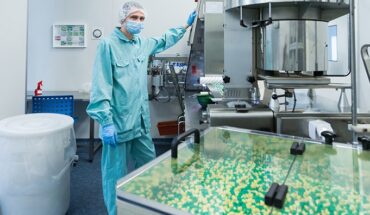
India’s Pharmaceutical Industry (IPI) is the third largest in volume terms and the 13th largest in value terms in the world. Pharmaceutical sector in India is dominated by family-owned enterprises. During Covid-19, two companies – Serum Institute of India (SII) which is world’s largest vaccine manufacturer by number of doses produced/sold globally and Bharat Biotech proved the strength of family-owned enterprises by supplying Covishield and Covaxin and both these organizations are closely-held companies. Serum Institute of India Private Limited, founded in 1966 by Dr. Cyrus S. Poonawalla, is wholly-owned by Poonawalla family and Bharat Biotech International Limited, incorporated in 1996 is owned by promoter family comprising Dr. Krishna Ella and his wife to the extent of about 86% (March, 2023) whereas rest is held by private equity investors.
In recent past, Private Equity has gained momentum in pharmaceutical sector in India. Private Equity funds fall under Category II – Alternate Investment Funds (AIFs). AIFs are established or incorporated in India and are privately pooled investment vehicles collecting funds from sophisticated investors, whether Indian or foreign. These funds are subject to the SEBI (Alternate Investment Funds) Regulations, 2012. Prominent names among global PE firms include Blackstone, KKR & Co., Carlyle Group, Thoma Bravo, TPG, Advent International, among others. Clout of these firms can be observed from the fact that Assets under Management (AUM) of Blackstone reached US $1 trillion in 2023 thereby becoming the first PE manager to pass this milestone.
Involvement of PE firms with Indian pharmaceutical companies provides interesting insights. For example, PE firm ChrysCapital took 11% stake for about Rs. 850 Mn in Mankind Pharma in 2007 (the company was incorporated in 1991), thereby valuing the company at Rs. 7.7 Bn, and sold this stake in 2015 to the US-based Capital International Group for a 14X return. Just after three years, ChrysCapital again bought a stake of 10% at two times of 2015 valuation. In May 2023, at the time of Initial Public Offering (IPO) by Mankind Pharma, ChrysCapital sold 2.5% holding while retaining 7.5%. Capital International Group also sold part of the stake at the time of IPO while retaining 6%.
Another interesting instance is of Actis Capital, a prominent PE firm’s involvement with Ahmedabad-based Paras Pharma, a family-owned pharmaceutical company in India. Paras Pharma (founded by Girish Patel, Devendra Patel and their family) owned brands like Dermicool (talcum powder), Moov (pain-relief gel), D’Cold (for cold and cough relief), Krack (skincare cream), etc. Initially, Actis acquired 23 per cent stake for $43 million in the year 2006. By March 2008, through a deal with younger sibling, Actis stake became almost 60 per cent. Then Girish Patel, the promoter, had 30 per cent stake and rest 10 per cent was held by other investors including PE firm – Sequoia Capital. With 60 per cent stake by the PE firm, it was decided by majority shareholders to bring in an outside professional as the CEO. In December 2010, Reckitt Benckiser decided to acquire Paras Pharma for Rs. 3,260 by buying the stake from Actis, Girish Patel and family, and other investors. Actis Capital is said to have made more than 3X of amount invested.
In November 2013, KKR & Co had agreed to invest about $200 million in Gland Pharma, a company established in 1978 by P.V.N. Raju, to acquire a minority stake. This marked the largest PE investment in an Indian pharma company, and Evolvence India Life Sciences Fund had sold the stake to KKR & Co. By July 2016, KKR & Co. had 36 per cent stake in Gland Pharma. In 2016 only, Shanghai Fosun Pharmaceutical (Group) Co. Ltd. acquired 86% stake of the company for $1.3 Bn including KKR’s 36% stake that was valued at $540 million. Founder was retained as the board member and his son was retained as the Managing Director by new owners holding majority stake.
In recent years, Private Equity players have become quite active in pharmaceutical sector in India. In July 2020, US-based PE giant KKR agreed to acquire 54% stake (including open offer of 26%) in Mumbai-based JB Chemicals & Pharmaceuticals for Rs. 3,100 Crore. J.B. Chemicals & Pharmaceuticals was established in 1976 by three brothers – Jyotindra Bhagwanlal (J. B.) Mody, D.B. Mody and S.B. Mody. Further, the company was primarily owned and controlled by Mody family till stake sale. During this period, in October 2020, Ajay Piramal Group company – Piramal Pharma Limited announced completion of 20% Strategic Growth Investment by Carlyle for Rs. 3,523.40 Crore. These deals became largest PE deals in the Indian pharmaceutical sector. In the last week of February 2024, KKR & Co. was contemplating stake sale in J.B. Pharma as per media reports, and firm was valued at $3 bn with a 65% rise in share price during last 12 months.
In December 2022, Advent International signed an agreement to buy a majority stake (50.1% for Rs. 6,313.08 Cr.) in Suven Pharmaceuticals from the Jasti family. At that time itself, the PE firm had conveyed the intention to explore the merger of its portfolio company – Cohance Lifesciences with Suven Pharma so as to build a leading Contract Development and Manufacturing Organization (CDMO) along with two other growth vectors namely Specialty Chemicals and Merchant API. MD of Suven Pharma – Venkateswarlu Jasti, was retained to provide consultancy services as the ‘Chief Advisor’ on the deal completion. In February, 2024 the merger of Suven Pharma and Cohance Pharma was announced, and in the merged entity, Advent entities were to own 66.7% stake and balance with public shareholders.
In last nine months, news regarding stake sale by promoters of CIPLA Limited, gained a lot of attention even though the transaction has not materialized. Hamied family as promoter holds 33.47 per cent stake in CIPLA, a company founded in 1935 by Dr. Khwaja Abdul Hamied, and now, ranked third in revenue terms. Currently, the company is headed by Dr. Yusuf Khwaja Hamied, 2nd generation entrepreneur. As per news reports, PE firm Blackstone was looking to acquire entire stake of promoters. Torrent Pharma, 8th largest pharma company was also contemplating to acquire controlling stake as successful merger could have created 2nd largest pharma company in revenue terms. At the same time, another PE firm – Bain Capital was said to be in talks with Dr. Reddy’s Labs, to acquire controlling stake in CIPLA as this could have culminated into formation of a 2nd largest Indian origin company in terms of domestic revenue. Size of the transaction was prohibitively high as promoters’ stake alone was valued close to $4.0 Bn. Due to the size of the deal, there was less competition, and PE firms had deeper pockets to make the deal happen.
A common theme emerged out of these transactions that meant change of family-owned, traditional management style to PE owned and professionally managed firm. Deal size in PE-backed transactions carried out in India has also gone up over a period. PE firms have invested in well-established companies with a good track record. Many Pharma MNCs globally have also undergone similar transition. In 1980s, many PE firms came into existence such as Bain Capital (1984), Blackstone Group (1985), Carlyle Group (1987) in the USA, and BC Partners (1986) in Europe, to name a few and brought significant changes in different industries. Now, PE firms are making serious inroads in Indian pharmaceutical industry. Entry of PE firms has helped existing promoters of family-owned pharmaceutical companies to grow at higher pace, and also helped them to unlock the wealth through IPO or exit through stake sale. In many pharmaceutical companies, promoters, or members of promoter family served in advisory capacity even after losing majority control to ensure smooth transition. PE firms have shown the capability to improve overall performance of certain firms due to their professional teams with entrepreneurial desire and got exit at attractive valuation. This trend of PE involvement with Indian pharmaceutical companies is likely to be positive for professional managers. It is also likely to ignite the debate on profits before patients and employees.
Dr. Anil Kumar Angrish, Associate Professor, Department of Pharmaceutical Management at NIPER, SAS Nagar (Mohali), Punjab
Disclaimer: Views are personal and do not represent the views of the Institute.





